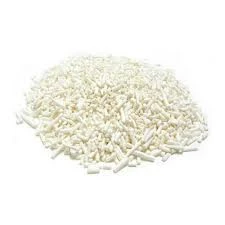
Exploring the Benefits of Lactic Acid as a Food Additive for Enhanced Flavor and Preservation
The Role of Lactic Acid Additives in Food Production
Lactic acid, a compound naturally found in various fermented foods, has gained significant attention in the food industry as an additive. With a chemical formula of C3H6O3, lactic acid plays a vital role in food preservation, flavor enhancement, and texture improvement. Its unique properties and versatility make it an essential ingredient in many food products, ranging from dairy to pickled vegetables. This article explores the various applications, benefits, and considerations regarding the use of lactic acid additives in food production.
Applications of Lactic Acid Additives
Lactic acid is commonly used in the food industry as a preservative, acidifier, and flavoring agent. It is particularly popular in dairy products, where it contributes to the tangy flavor characteristic of yogurt and cheese. The fermentation process, wherein carbohydrates are converted into lactic acid by lactic acid bacteria, not only enhances the flavor but also improves the shelf life of these products.
In addition to dairy, lactic acid is also found in a variety of pickled products. Its acidity helps inhibit the growth of spoilage microorganisms, ensuring that pickled vegetables remain safe for consumption over extended periods. Moreover, lactic acid can modify the pH level of food products, allowing for a more balanced flavor profile.
Another significant application of lactic acid is as a flavor enhancer in meat products. It can improve the overall taste and aroma of cured meats while also serving as a natural preservative. The use of lactic acid in meat processing can lead to a reduction in the need for synthetic preservatives, aligning with consumer demand for more natural ingredients in their food.
Benefits of Lactic Acid Additives
lactic acid additive

One of the primary benefits of lactic acid is its ability to extend the shelf life of food products. By lowering the pH and creating an inhospitable environment for harmful bacteria, lactic acid effectively preserves food, reducing waste and enhancing food safety. This is particularly important in today’s market, where food safety is a top priority for consumers.
Lactic acid also contributes to the nutritional profile of food. For example, in yogurt production, the fermentation process with lactic acid not only aids in digestion but also enriches the product with probiotics, which are beneficial for gut health. The presence of probiotics in foods has been linked to various health benefits, including improved digestion, enhanced immune function, and even mood stabilization.
Furthermore, lactic acid is considered a cleaner label ingredient. With the growing trend towards transparency and natural ingredients in food production, lactic acid provides food manufacturers with a viable option that resonates with health-conscious consumers. Unlike synthetic preservatives, lactic acid is naturally occurring, derived from fermented plant sources, which appeals to the modern consumer's preference for organic and minimally processed foods.
Considerations and Conclusion
Despite its numerous benefits, the use of lactic acid additives is not without considerations. Some consumers may have sensitivities to certain food additives, including lactic acid, particularly if they have specific dietary restrictions. Additionally, the potential for overuse in products can lead to a pronounced sour taste, which may not be desirable in all applications.
In conclusion, lactic acid additives play a crucial role in food production, offering a range of benefits from preservation to flavor enhancement. As the food industry continues to evolve, the demand for natural and effective food preservatives will likely increase. Lactic acid stands out as an ingredient that not only meets these requirements but also aligns with consumers' growing preference for health-oriented products. As more research unfolds and consumer awareness grows, lactic acid additives will undoubtedly maintain their significance in the future of food production.
-
Buy High-Quality Trichloroisocyanuric Acid for Sale | TCCA 90% SupplierNewsAug.30,2025
-
Pure Sodium Dichloroisocyanurate Dihydrate | Powerful DisinfectantNewsAug.29,2025
-
Industrial Chemicals: Quality & Purity for Every IndustryNewsAug.28,2025
-
Nitrile Rubber Honoring Strict Production StandardsNewsAug.22,2025
-
Aspartame Ingredients Honoring Food Safety ValuesNewsAug.22,2025
-
Fertilizer for Balanced Plant NutritionNewsAug.22,2025
-
Cyanide Gold Processing with High Purity AdditivesNewsAug.22,2025
Hebei Tenger Chemical Technology Co., Ltd. focuses on the chemical industry and is committed to the export service of chemical raw materials.
-

view more DiethanolisopropanolamineIn the ever-growing field of chemical solutions, diethanolisopropanolamine (DEIPA) stands out as a versatile and important compound. Due to its unique chemical structure and properties, DEIPA is of interest to various industries including construction, personal care, and agriculture. -

view more TriisopropanolamineTriisopropanolamine (TIPA) alkanol amine substance, is a kind of alcohol amine compound with amino and alcohol hydroxyl, and because of its molecules contains both amino and hydroxyl. -

view more Tetramethyl Thiuram DisulfideTetramethyl thiuram disulfide, also known as TMTD, is a white to light-yellow powder with a distinct sulfur-like odor. It is soluble in organic solvents such as benzene, acetone, and ethyl acetate, making it highly versatile for use in different formulations. TMTD is known for its excellent vulcanization acceleration properties, which makes it a key ingredient in the production of rubber products. Additionally, it acts as an effective fungicide and bactericide, making it valuable in agricultural applications. Its high purity and stability ensure consistent performance, making it a preferred choice for manufacturers across various industries.





